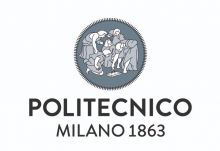
The SATs and the ACTs are the two different tests that students are required to take for admittance to a US university.
All colleges require students to take either the SAT or the ACT and submit their scores to their prospective universities. There is no advantage of taking one test over another, so it is important to choose the test that is best for you, whether you are a domestic US student or an international student.
Some students opt to take both tests, given that they cover slightly different things, but this is not always a viable option for people because of time and financial constraints.
The SAT was also overhauled in 2016, so for those students taking advice from friends or family who took the test a few years ago it’s worth noting that the test may have changed since they took it. The new SAT places more emphasis on logic and reasoning skills. The reading and writing questions are now entirely passage-based, so students are able to show deeper analysis of the construction and themes in a passage and the maths section includes more practical, realistic scenarios and problems that require multiple steps.
We’ve broken down the differences between the two tests so that you can figure out which works best for you.
1. Subject content
One of the main differences between the SAT and the ACT is that the ACT includes a science section and the SAT does not. The SAT does test scientific skills through some of the other sections, but does not have a dedicated science portion like the ACT does.
The science section in the ACT does not test specific scientific knowledge – it is focused more on critical thinking, designed to test students’ analytic skills.
2. Equipment
Both tests include a maths section. While both will cover geometry and trigonometry, the SAT will also cover data analysis. The ACT, on the other hand, will cover probability and statistics. A key difference in the maths sections of each test is that the ACT does not allow a calculator for any of the maths sections. The SAT has one non-calculator section and one calculator section.
3. Scoring
The SAT is scored on a scale of 400-1600 and the ACT will be scored on a scale of 1-36. It is also important to remember that you will only be scored for every correct answer that you give and you will not be penalised for incorrect answers on both tests.
Tempted to pay for your essays? Here are six reasons not to
5 revision techniques to help you ace exam season (plus 7 more unusual approaches)
How to deal with exam stress
How to write a US college admissions essay
Why the US College Rankings are designed for students
4. To essay or not to essay
Both tests have an optional essay section. For the SAT’s essay portion, you will be tested on your comprehension of a source text. The essay portion of the ACT will test how well you evaluate and analyse complex issues. As the essay portion is optional in both tests, universities will not take the score of the essay portion into account in the admissions process.
5. Length
The SAT is the longer of the two tests at three hours without the essay, and three hours and 50 minutes with the essay. The ACT is three hours and 35 minutes with the writing section, and three hours without it.
The lengths of each sections vary between the two tests, which can be seen below.
| ACT | SAT |
| English: 45 mins Math: 60 mins Reading: 35 mins Science: 35 mins Writing (optional): 40 mins |
Reading: 65 mins Writing and language: 35 mins Math (no calculator): 25 mins Math (calculator): 55 mins Essay (optional): 50 mins |
6. Cost
The cost of each test varies only slightly, but may determine whether you decide to take both or whether you take one of them.
| ACT | SAT |
| $46.00 without writing $62.50 with writing |
$47.50 without essay $64.50 with essay |
Read more: Hoping to apply to a US university as a foreign student?


















Have your say